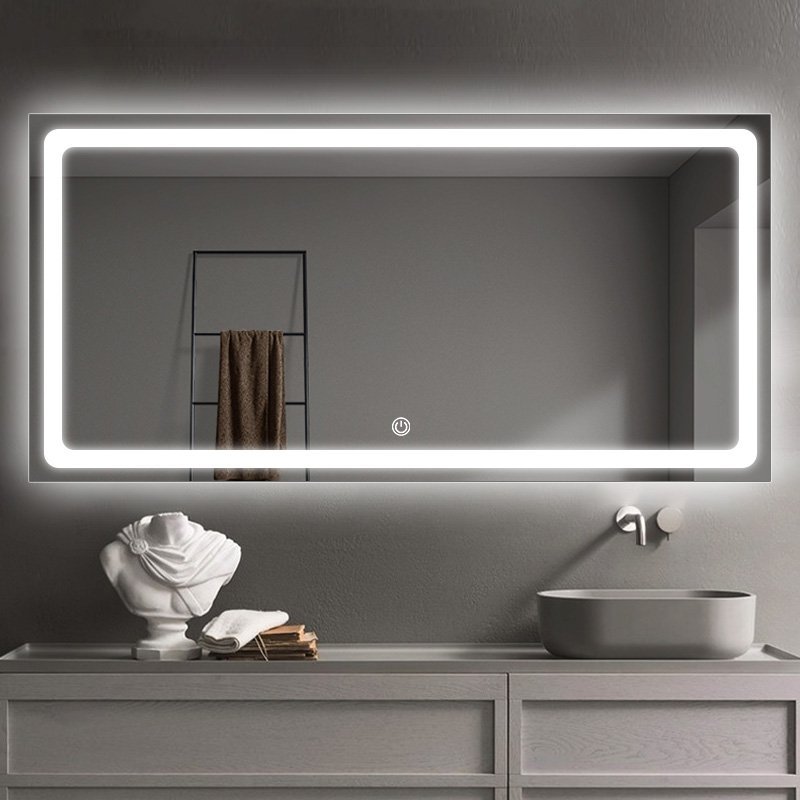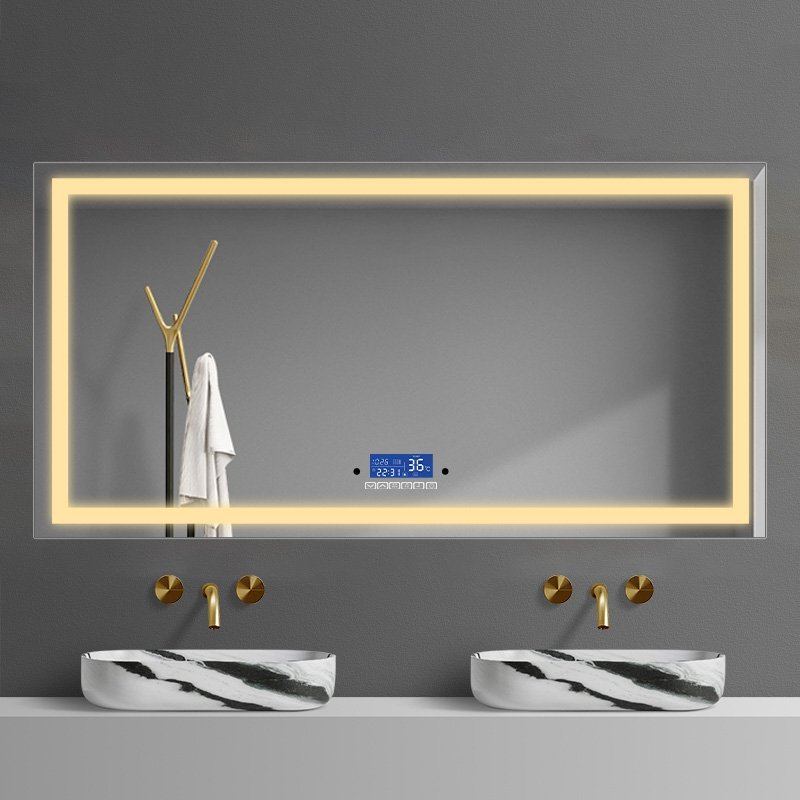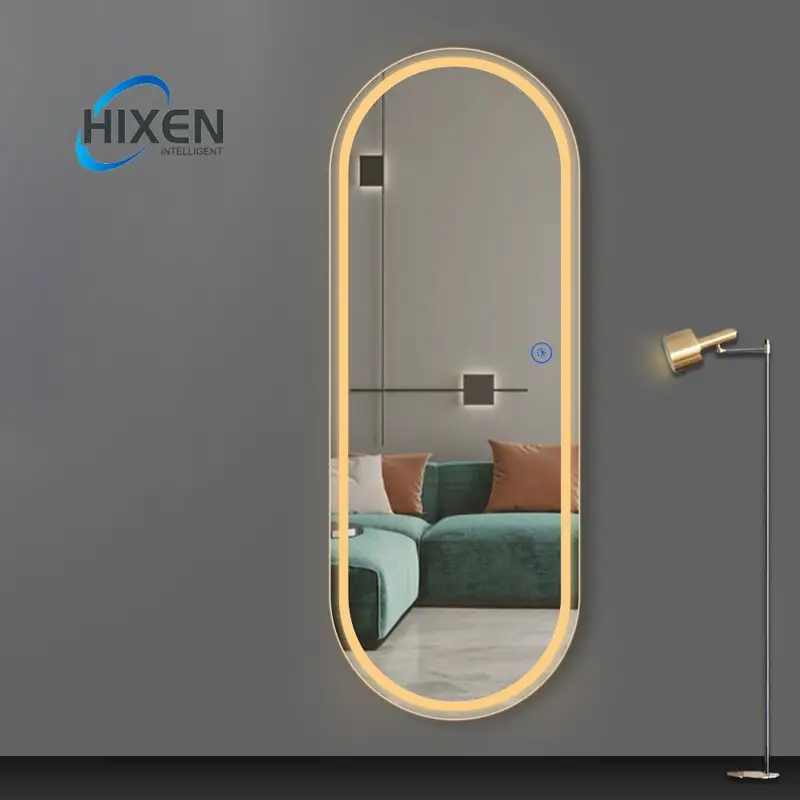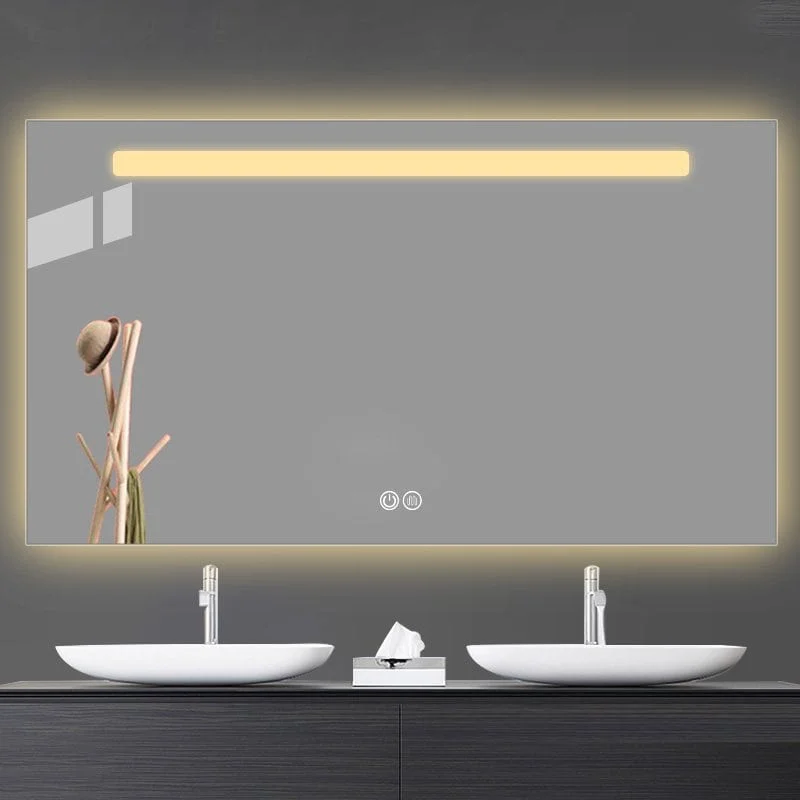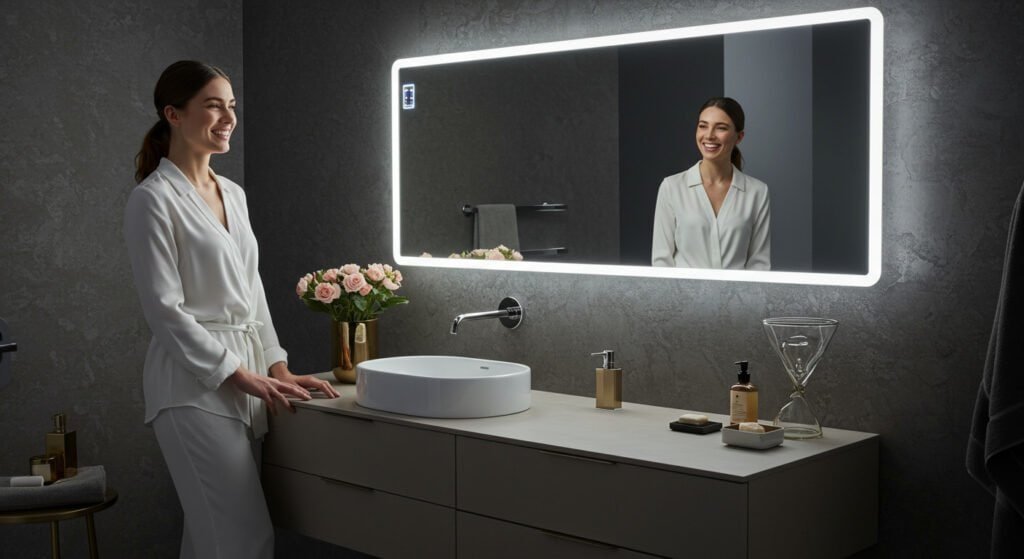|
Conseguir tu Trinidad Audio jugador listo...
|
¿Alguna vez te has preguntado cómo un Espejo de dos vías obras? Estos espejos fascinantes tienen un doble propósito, reflejar la luz en un lado mientras lo deja pasar por el otro. Pero lo que los hace diferentes de los espejos regulares?
A espejo de dos vías es un tipo especial de espejo que es reflectante en un lado y transparente en el otro. Funciona al permitir que más luz pase desde el lado transparente, dependiendo de las condiciones de iluminación. Esta propiedad única es lo que diferencia un espejo bidireccional de un espejo estándar.
Ahora que sabemos qué es un espejo de dos vías, Exploremos sus diferencias, usos, y cómo puedes identificar uno.
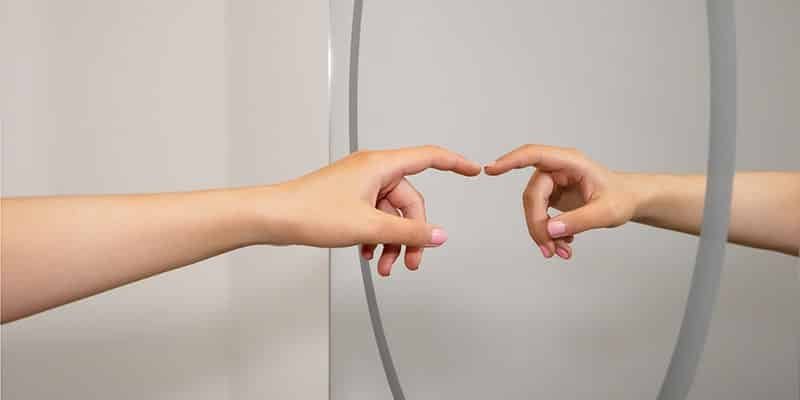
¿Cuál es la diferencia entre un espejo unidireccional y de dos vías??
A primera vista, espejos de dos vías y espejos unidireccionales puede parecer lo mismo, Pero existen diferencias clave en cómo funciona cada espejo y sus aplicaciones específicas. Comprender estas diferencias es crucial para comprender dónde y cómo se usa cada uno.
La diferencia clave entre un espejo de dos vías y un espejo de ida radica en su capacidad para transmitir y reflejar la luz. A espejo de ida se usa típicamente en vigilancia y permite a las personas de un lado observar sin ser vistos. A espejo de dos vías, por otro lado, puede funcionar como una superficie reflectante y transparente dependiendo de las condiciones de iluminación.
En espejo de dos vías, El recubrimiento reflectante es lo suficientemente delgado como para permitir que la luz pase cuando se ve desde el lado más oscuro.. Esto lo hace adecuado para aplicaciones donde la privacidad u observación es importante, como Prueba de espejos bidireccionales en configuración de seguridad. En contraste, a espejo de ida Por lo general, requiere un contraste significativo en la iluminación para funcionar de manera efectiva.
Por ejemplo, espejos unidireccionales a menudo se usan en salas de interrogatorios policiales, donde el observador está en una habitación oscura, y la persona que se observa está bajo luces brillantes. Mientras que ambos tipos de espejos se usan en vigilancia y monitoreo de seguridad, espejos de dos vías también se encuentran comúnmente en Espejos LED personalizados o espejos retroiluminados utilizado en baños o para fines decorativos. Estos espejos se han vuelto populares en el diseño de montado en la pared y espejos de lujo donde la funcionalidad dual es una característica clave.
¿Por qué se reflejaría un espejo bidireccional de manera diferente??
El reflejo de la luz en un espejo de dos vías puede variar significativamente en función de la iluminación a cada lado del espejo. Esta dualidad es una de las características clave que establece Espejos de dos vías Aparte de los espejos regulares.
A espejo de dos vías refleja la luz en un lado y permite que la luz pase desde el otro lado. Cuando el espejo se ilumina del lado reflectante, actúa como un espejo regular. Sin embargo, Cuando la luz del lado reflectante se atenúa y el otro lado está brillantemente iluminado, El espejo te permite ver a través de él. Esto se debe a que en el lado más brillante, La luz reflejada domina, Mientras que en el lado más oscuro, La luz transmitida se vuelve más significativa, permitiéndonos ver el otro lado.
Los espejos de dos vías se reflejan de manera diferente 2 Debido a su recubrimiento único, Típicamente hecho de capas metálicas delgadas como plata o aluminio. Este revestimiento delgado refleja la luz del lado más brillante, haciendo el Espejo de dos vías parecer opaco. Cuando se ve el espejo desde el lado más oscuro, La diferencia en la intensidad de la luz permite que el espejo se vuelva transparente.
Para resumir, Los espejos de dos vías se reflejan de manera diferente debido a sus recubrimientos especiales y dependencia de las condiciones de la luz, lo que los hace comportarse como espejos en un lado y como superficies transparentes o transparentes en el otro, Dependiendo de las condiciones de la luz. En entornos como habitaciones de hotel o baños, dónde espejos de dos vías se utilizan para la privacidad u observación, Prueba de espejos bidireccionales a menudo implica garantizar que las condiciones de iluminación sean apropiadas para el uso previsto del espejo. Por ejemplo, a espejo LED personalizado utilizado en un baño puede incorporar espejo de dos vías tecnología para permitir el ajuste de la luz y crear un elegante, apariencia moderna.
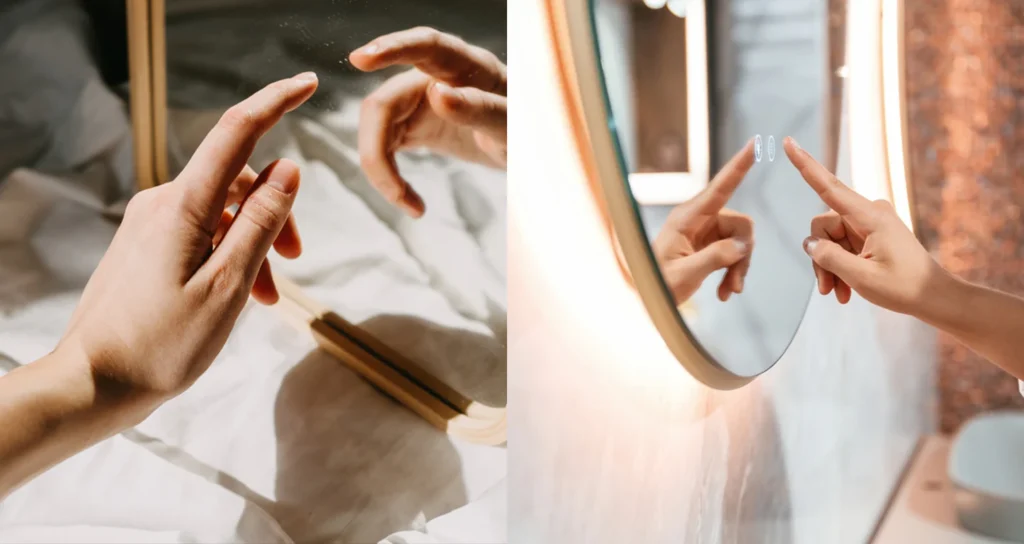
Qué es 2 forma de espejo y cómo funciona?
Para comprender completamente cómo un espejo de dos vías funciones, Es importante mirar los materiales y la tecnología detrás de su creación.. El principio de trabajo de un Espejo de dos vías se basa en la transmisión de luz y la reflexión.
A espejo de dos vías Funciona usando un revestimiento metálico delgado que refleja la luz cuando se ilumina. Cuando se ve desde el lado iluminado, parece un espejo regular, Pero cuando se ve desde el lado más oscuro, se vuelve transparente. La efectividad del espejo de dos vías Depende de la diferencia en los niveles de luz a cada lado.
La ciencia detrás de un espejo de dos vías implica el uso de un recubrimiento semirreflexivo, que típicamente es una capa delgada de metal, como la plata, aluminio, o cromo. Este recubrimiento se aplica a un lado del vidrio., permitiendo que refleje la luz cuando el lado positivo está iluminado.
El Espejo de dos vías se vuelve transparente cuando se ve desde el lado del tenue, Como la capa metálica permite que pase la luz. Esta propiedad es esencial para espejos retroiluminados o Espejos LED personalizados donde se combinan la funcionalidad y la estética. En espejos montados en la pared usado en casas, hoteles, u oficinas, el espejo de dos vías puede servir tanto como una pantalla de privacidad como una superficie reflectante, Creando un diseño elegante y funcional.
¿Cómo se sabe si un espejo es bidireccional??
Puede ser un desafío identificar un espejo de dos vías a primera vista, Pero hay varias pruebas simples que puede realizar para determinar si un espejo tiene esta propiedad única.
Probar si un espejo es un espejo de dos vías, puedes usar el “prueba de dedo.” Presione su dedo contra la superficie del espejo y verifique si hay un espacio entre el reflejo y el dedo. Si hay una brecha notable, Es probable que sea un espejo de dos vías.
El “prueba de dedo” es uno de los métodos más simples para determinar si un espejo es un espejo de dos vías. Los espejos regulares no tendrán brecha entre el dedo y el reflejo, mientras Espejos de dos vías tendrá una brecha visible. Otro método de prueba implica ajustar las condiciones de iluminación a cada lado del espejo.
Si el espejo se vuelve transparente cuando la luz se atenúa en un lado, está funcionando como un espejo de dos vías. En lugares como habitaciones de hotel, dónde espejos de dos vías puede usarse para fines de privacidad o seguridad, Es importante asegurarse de que el espejo esté éticamente instalado y utilizado.. Si no estás seguro de si el 2 la forma en que el baño espejo funciona correctamente, siempre realizar un prueba de espejo de dos vías Antes de usarlo para reflexión personal.
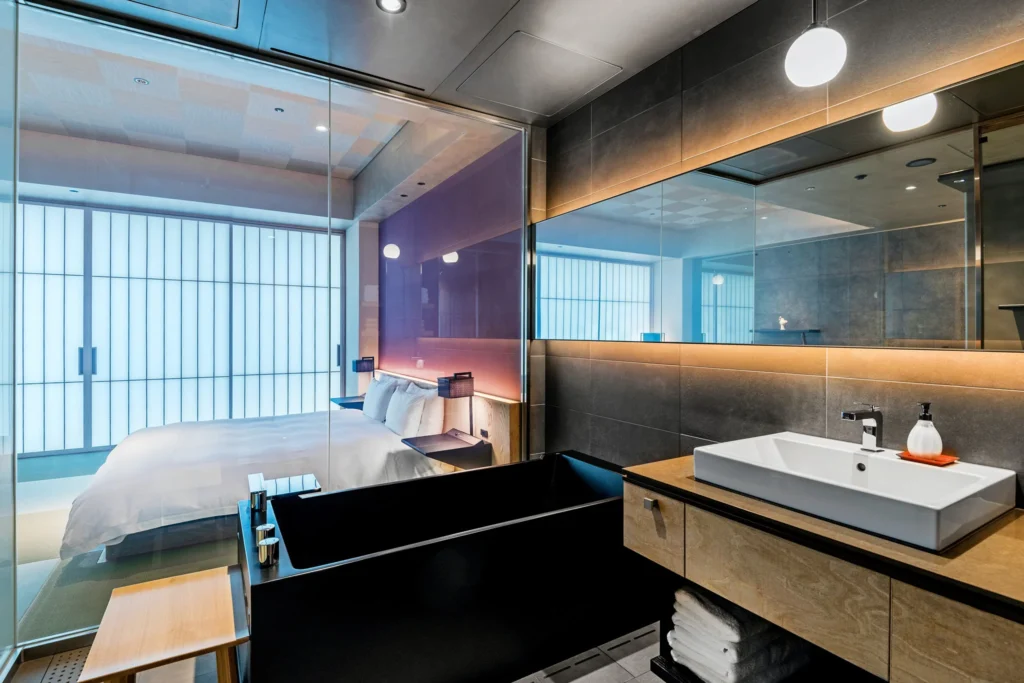
¿Para qué se usa un espejo bidireccional??
Espejos de dos vías servir una variedad de propósitos en diferentes industrias, que se extiende desde seguridad a diseño interior. Se usan comúnmente en lugares donde se requiere observación sin revelar la presencia del observador.
A espejo de dos vías se utiliza principalmente en seguridad, vigilancia, y configuración de observación. Permite a las personas monitorear actividades sin ser detectados, haciéndolo perfecto para usar en habitaciones de hotel, salas de interrogatorio, y áreas de alta seguridad. Además, espejos de dos vías se están volviendo populares en el diseño de interiores, particularmente en Baños de lujo o Espejos LED personalizados que ofrecen privacidad y funcionalidad.
En configuraciones como salas de interrogatorio o mazos de observación, a espejo de dos vías es ideal para monitorear el comportamiento sin ser visto. Para Fabricantes de espejo LED, incorporando un 2 El baño de espejo en sus diseños puede ofrecer a los clientes una forma funcional y elegante de usar espejos. Estos espejos también se pueden personalizar para necesidades únicas., como aquellos con retroiluminado efectos o montado en la pared diseños.
Es un espejo de doble vía seguro?
Una de las preocupaciones comunes con espejos de dos vías es si son seguros de usar en espacios públicos y privados. Mientras espejos de dos vías puede ser perfectamente seguro cuando se usa adecuadamente, Hay consideraciones éticas específicas a tener en cuenta.
En general, espejos de dos vías son seguros de usar cuando se instalan de acuerdo con las leyes y regulaciones de privacidad. Sin embargo, surgen preocupaciones cuando se usan en entornos como habitaciones de hotel sin el conocimiento o consentimiento de los individuos que se observan.
La seguridad de un espejo de dos vías depende de dónde y cómo se usa. Por ejemplo, espejos de dos vías a menudo se encuentran en Configuración de seguridad como salas de interrogatorio, Donde se siguen las pautas éticas, y las personas son conscientes de que pueden ser observadas. En habitaciones de hotel, sin embargo, el uso de espejos de dos vías ha sido controvertido debido a preocupaciones de privacidad.
Generalmente se requieren hoteles para revelar la presencia de tales espejos a los invitados, y moderno fabricantes de espejos de baño han respondido asegurando que su Espejos LED o Espejos personalizados se utilizan de manera transparente y ética. Como con cualquier tecnología, espejos de dos vías debe usarse de manera responsable para evitar infringir la privacidad de las personas.
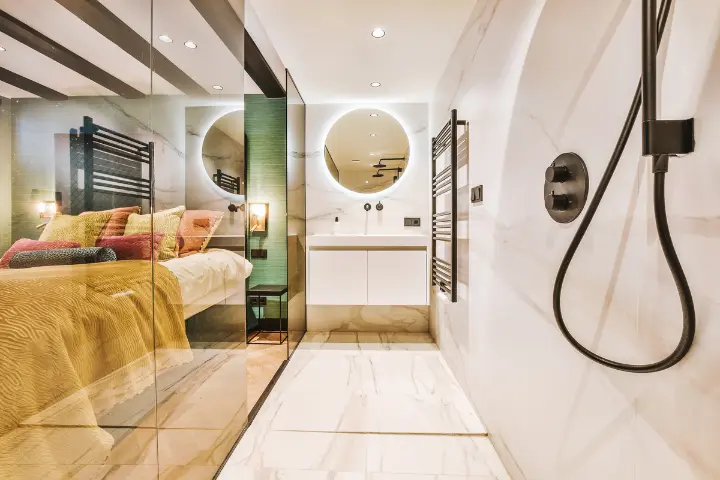
Conclusión
Los espejos de dos vías son una herramienta intrigante y versátil, ampliamente utilizado en seguridad, vigilancia, y diseño. Ya sea para un Espejo LED personalizado en tu baño o en un hotel, Comprender su funcionalidad puede ayudarlo a tomar decisiones informadas al incorporarlas en su espacio. Quiero aprender más? No dude en preguntar o compartir sus experiencias con Prueba de espejos bidireccionales!





